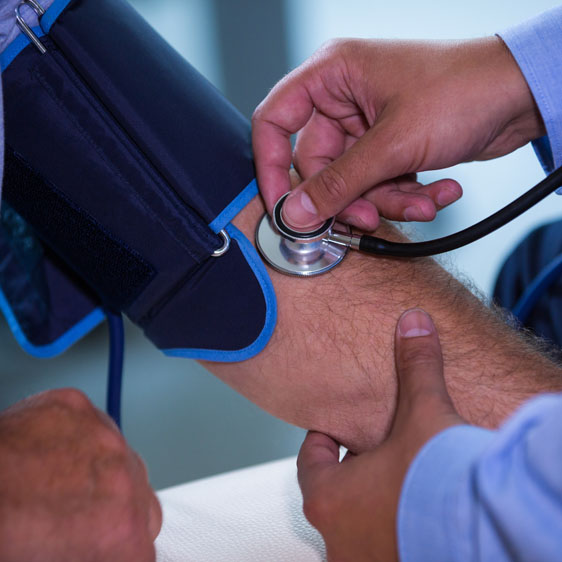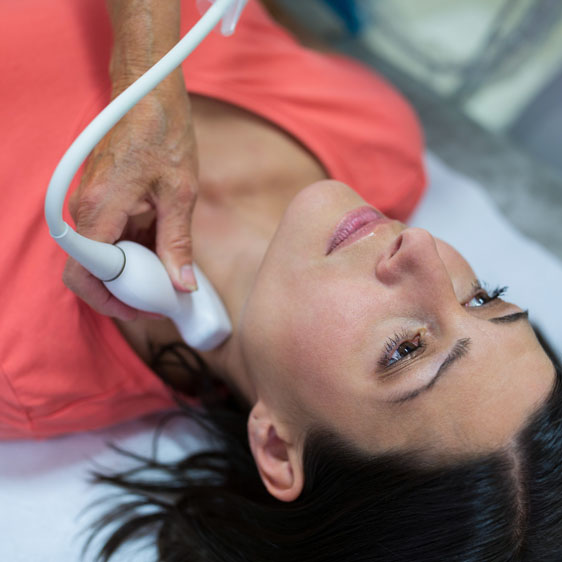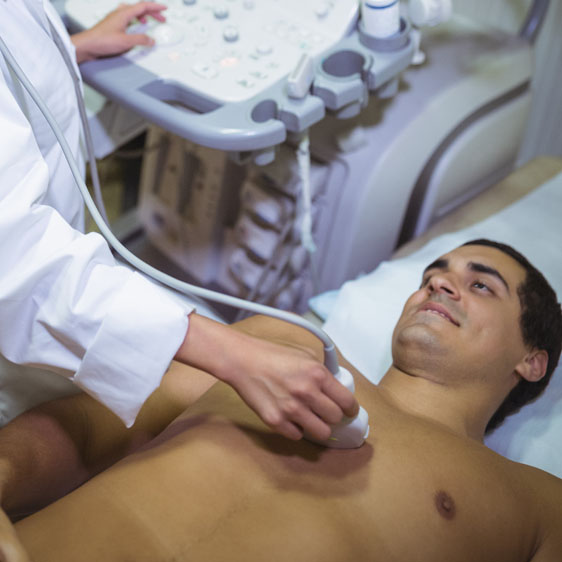
Heart disease is the leading cause of death in the United States each year, according to the Centers for Disease Control and Prevention. Beaufort Memorial's team of board-certified cardiologists have a wide range of tests available to them to help patients determine their heart health and develop a plan to achieve cardiac wellness.
Here are the tools cardiologists use to test your ticker and help you keep your heart in optimal health.
Electrocardiogram: For this test—also called an ECG or EKG—leads are attached to your chest with adhesive and record your heart’s activity—its rhythm and any skipped beats. Most common is a resting EKG, which is performed while you're laying down.
An electrocardiogram can also be performed while you are walking on a treadmill or riding a stationary bike. This is commonly known as a stress test and lets cardiologists observe the results while your heart is under stress, so they can determine if you are actually having a heart attack or if you have heart damage.
 Ankle-Brachial Index Scan: A quick, noninvasive test that compares the blood pressure measured at your ankle with the blood pressure measured at your arm.
Ankle-Brachial Index Scan: A quick, noninvasive test that compares the blood pressure measured at your ankle with the blood pressure measured at your arm.
Chest X-Ray: This test allows doctors to look at both your heart and your lungs, since these diseases of both can be intertwined. It also shows things like cracked ribs, which can simulate heart disease in pain symptoms.
Nuclear Stress Test: To determine if enough blood is reaching your heart during activity and at rest, a radioactive liquid is injected into your vein while you exercise. A special camera is used to detect the radiation and produce images of the blood flowing around and through your heart. This helps determine if you have reduced blood flow to any specific part of your heart that may indicate coronary artery disease.
 Carotid Artery Scan: This ultrasound procedure looks at how blood flows through the carotid arteries in your neck.
Carotid Artery Scan: This ultrasound procedure looks at how blood flows through the carotid arteries in your neck.
Echocardiogram: An ultrasound of your heart that shows structural details, how the heart muscle is squeezing and if the valves are working properly. Narrowed or leaky valves, blood clots or previous heart attacks can also show up. A transesophageal echocardiogram is performed by inserting a device down your esophagus to look at your heart from behind.
Cardiac Catheterization: In this test, which is also called a coronary angiogram, a small catheter is threaded into a femoral artery in your leg or, in some cases, a radial artery in your wrist. Using an X-ray as a guide, the cardiologist then moves the catheter through the blood vessel to your heart, where dye is injected to illuminate abnormalities and check blood flow. The doctor can also use a balloon and stent to open up a blockage during this procedure.
 Abdominal Aortic Aneurysm Scan: This test uses ultrasound imaging to see if there is a bulge or swelling in the aorta, the main blood vessel that runs from your heart down through your abdomen.
Abdominal Aortic Aneurysm Scan: This test uses ultrasound imaging to see if there is a bulge or swelling in the aorta, the main blood vessel that runs from your heart down through your abdomen.
Coronary CT Scan: This noninvasive imaging method uses X-ray, or computerized tomography, to look at the coronary arteries and spot blockages.
Holter Monitoring: This test gives cardiologist a look at your heart activity over time, as you typically wear a heart monitor for 24 hours. Some patients wear the monitors for as long as a month, and those with rhythm abnormalities that arise infrequently might have the monitors implanted to record activity.
Interested in a quick check of your heart health?
Take advantage of our $60 cardiovascular screening package that includes a carotid artery scan, abdominal aortic aneurysm scan and ankle-brachial index scan. Simply call 843-522-5635 to make an appointment (no referral needed), and let the scheduler know whether you would like to be screened in Beaufort or Okatie.
